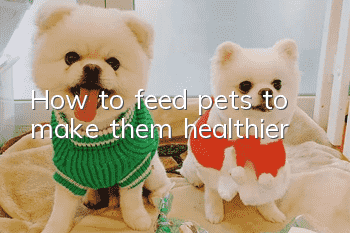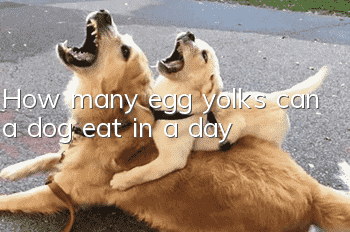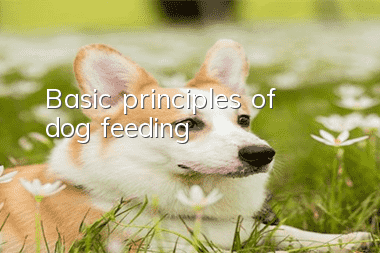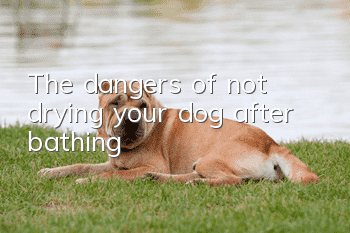How to feed pets to make them healthier!

01. Is the higher the nutritional index of pet food, the better?
The various nutritional needs of pets have a certain range, and the nutritional index of pet food is not as high as possible. For example, protein, the minimum protein concentration of pet food set by the global pet nutrition organization AAFCO is: 22.5% for puppies and 18% for adult dogs. For some young and normal dogs, excessive protein may not have much impact, but it will be harmful to sick dogs because it increases the burden on their livers. It is also harmful to elderly dogs and will destroy the circulatory system of elderly dogs. If dogs with liver and kidney damage are fed high-protein foods, excess nitrogen will be deposited in body fluids and tissues, causing burden on the liver and kidneys. Therefore, eating food with higher nutritional index is not better for pets.
02. Can I feed pets leftovers?
Many leftovers contain too much sugar, salt, and fat. Feeding pets for a long time will cause pet obesity, which will then increase the incidence of nutritional and metabolic diseases such as heart disease, dystocia, arthritis, etc., which is not good for the health of pets. In addition, leftovers are generally soft and sticky. If pets eat these foods for a long time, it is very easy for pets to accumulate tartar in their mouths, which can lead to dental calculus, periodontitis, and bad breath in pets.
A large number of pet studies and pet clinical reports show that pets that are fed leftovers for a long time usually develop serious dental calculus problems around the age of 5. In most cases, periodontitis caused by dental calculus requires tooth extraction, which seriously affects the quality of life of pets. Pets that have been consuming professionally formulated pet food for a long time have to constantly bite the food when eating every day, causing continuous tooth friction and gum massage. Their teeth are generally very healthy, and there are almost no oral problems before the age of 8 years old.
03. Does pet food need to be soaked in hot water?
The teeth of dogs and cats are strong enough to crush food particles easily. The hardness of dog and cat food can ensure that the teeth of dogs are cleaned and rubbed when eating. In addition, the biggest disadvantage of soaking cat and dog food in hot water is that a large amount of vitamins are destroyed, which will lead to insufficient vitamin intake for pets. Therefore, for healthy dogs and cats, it is not recommended to soak food in hot water before feeding.
04. What should you pay attention to when feeding young pets?
Dogs can easily overeat, causing gastric dilation and endangering their health. Therefore, do not feed puppies too much food at one time. It is more reasonable to divide feeding into three times a day. In addition, young dogs and cats are in the peak period of growth and development and have strong nutritional needs. They need to provide comprehensive and balanced nutrition. Eating professionally formulated dog food and cat food can ensure that they achieve ideal physical development.
05. How should the diet of elderly pets be adjusted?
Generally speaking, the basal metabolic rate of elderly pets decreases, so the energy density of food should be appropriately reduced to reduce the burden on their liver and kidneys, and at the same time, it can prevent obesity and reduceLow incidence of pet geriatric diseases. The tooth function of elderly pets decreases, so the hardness of pet food should be appropriately reduced. However, it is not recommended to feed elderly pets too soft food (such as meals), because a diet that is too soft will increase tartar and is not good for the oral and heart health of elderly pets. .
06. What other issues need to be paid attention to when feeding pets?
1. Milk cannot replace water. Milk is a useful snack for dogs and cats, but they don't tolerate large amounts of milk. Milk contains lactose, which requires lactase in the gastrointestinal tract to digest it. If the lactase content in the gastrointestinal tract is insufficient or the lactose content is excessive, it will cause diarrhea in some pets.
2. Do not add raw eggs to pet food. The whites of raw eggs contain antibiotic proteins, which block the absorption of vitamin H. Vitamin H deficiency can cause dermatitis, hair loss and stunted growth.
3. Avoid feeding certain raw fish. Some fish can cause vitamin B1 deficiency in pets, leading to anorexia, abnormal behavior, convulsions, emaciation and even death.
4. Although both dogs and cats like to eat meat, meat is not a nutritionally balanced food. Raw meat may contain parasites, and cooked meat is high in fat and unbalanced in nutrients.
Grow knowledge together
07. Which foods can harm pets’ health?
Human food is not suitable for pets. Some human foods that seem particularly good may be seriously harmful to pets' health.
Editor-in-Chief: Xiang Long
Editor: Wei Ran
Content source: "Consumer Guide" magazine
- How to train a golden retriever to defecate in the toilet? Golden retriever toilet training!
- What are the benefits of wearing a muzzle on your dog when going out?
- Dogs that are poisoned usually die within a few days.
- How do you treat your dog if he suffers from depression?
- How to diagnose infectious hepatitis in dogs
- What should I do if my dog eats the ham wrapper?
- Why does a dog’s belly turn black?
- Causes, symptoms and treatments of dog eczema
- What to look out for when buying a Mastiff puppy
- What causes fungal infections in dogs



